The content of the article
A few decades ago, children went to schools with a minimal knowledge base, which was given in kindergarten. In the first grade, children gradually began to get acquainted with letters and numbers. The modern school curriculum is quite complicated; today's children must come to school with a certain amount of knowledge. A first grader can usually read, write a little in block letters, add and subtract numbers to 10. How is that? Why is the study load increasing every year? Most likely, this is the spirit of the times. Fifty years ago, people studied at an institute and a technical school, received an education, and worked all their lives by profession. The current market places modern specialists in more stringent conditions. Today, in order to stay afloat, you need to constantly learn, improve, develop.Therefore, in school, the program becomes more difficult, increased requirements arise even for first-graders.
Preparation for school is a multifaceted process that includes skills in various subjects - reading, counting, writing. The kid should be able to engage in various types of creativity - it is drawing with paints and pencils, modeling, application. The child should know the colors, shapes, seasons and many, many other interesting things. And also the future first grader should be socially adapted - this means that the child should be able to communicate with peers and adults, not be afraid of them. In this article we will talk about the multifaceted preparation of preschoolers for the first class, which will allow you to fill in the gaps in the training and emotional state of the baby.
What the future first grader should know
Some parents make a big mistake when they think about preparing for school only in the summer, three months before the start of school. As a rule, this is accompanied by serious workloads, in fact, the child does not rest before the school year. It is dangerous for the immune system and the nervous system of the baby. For learning to be comfortable and effective, it should be started long before the beginning of the school process.Gradually, from the age of three, you can teach your child to count fingers on his hands, tell him about the surrounding nature, learn colors, etc. And from the age of five, training should be more serious. Children who go to kindergarten and special developmental centers are much more prepared in this regard. After all, a mother, even if she devotes a lot of time to a child and regularly deals with him, cannot cover such an extensive program. Here are some of the skills and knowledge that a future first grader should have.
Score
These are the basics of mathematics and counting, which first of all consist in the excellent knowledge of numbers. The child should understand the principle of counting up to 100. He should be able to count not only from one, but from a given number, for example, he was told 4, and the baby continued - 5.6, 7, etc. Within 10, the child should be able to name the next numbers. That is, the number 7 is given, the child must determine that there are 6 before it, and after seven - 8. The child must be familiar with concepts such as bigger, smaller and equal, he must be able to compare numbers within 10. A future first-grader not just to memorize numbers, but to understand their meaning, he should be able to count apples, sweets, and other objects.In some schools there are requirements that the baby should be able to add and subtract within 10, the child should know what is plus and minus. Sometimes it requires not only a simple, but also a counting down. Without fail, a child of 6-7 years old should know the names of the main geometric figures - a circle, square, oval, triangle, etc. These are the basic mathematical knowledge that a child must have before school.
Letter
Many children are able to write to school, but only in printed, but not in capital letters. The child must know all the letters, must be able to write simple words (allowed if he confuses E and Z, writes some letters in a mirror image). The kid should distinguish vowels from consonants, he should know the differences between letters and sounds. A future first grader must be able to divide a word into syllables; it must determine the location of a given letter in a word - at the beginning, in the middle or at the end. If you make a letter, the child should name a few words on this letter. The kid should be able to correctly hold the pen, stroke the picture along the contour without tearing the pencil from the paper. Usually at this age, children can draw straight and wavy lines, they trace various dotted curlicues in the entries.A preschooler, as a rule, paints pictures with paints and pencils rather accurately.
Reading
Creation
A child at this age paints pictures well, without leaving its contours. The kid should be able to accurately use markers, paints, pencils. He should be able to shade the marked areas on paper.A child of this age is quite well sculpts of various animals, fruits, vegetables, geometric shapes. The kid already has some abstract thinking - he can visually create an ikebana, an application of dry leaves, make crafts out of improvised means, etc.
The world
A child by the age of 7 should know the days of the week, the seasons and months, the country of residence and the capital of his homeland. It is very important that the baby can name his full name, the name of his parents, his phone number and address. The child must know the names of the main animals, birds, fish. He should know how a tree is different from a shrub, should distinguish between fruits, berries and vegetables. The kid should know various natural phenomena - thunder, rain, hail, hurricane. It is important to acquaint the child with such concepts as morning, afternoon and evening.
This is the basic knowledge with which the child must come to the first grade. No one says that a baby will not be taken to school if he does not know all this. But it will be much more difficult for a child to master the material if he cannot deal with the simplest initial concepts.
How to learn to be independent in school
When giving a child to school, parents should understand that from now on the baby will be left to himself in terms of hygiene. The primary school teacher, of course, helps children in many respects, but this is, after all, not a teacher and nurse in kindergarten. A child by the age of seven should be able to dress and undress completely independently - tie shoelaces, use zippers and rivets, fasten buttons, open and close an umbrella, change clothes for physical education, fold things, clean up after themselves, keep their workspace in order. It is as important as being able to read and write.
In addition, the child should be brought up, explain to him the rules of behavior in society. He must understand that you cannot run, scream and indulge in a lesson. You can not fight, offend the weak, bully, snap, foul language, etc. It is necessary to greet, give way to adults, take care of school furniture, you need to help the girls to bear the burden. The child should know all these elementary rules before entering school; these are basic norms of etiquette. Raising a baby comes from a family, remember this.
How to psychologically prepare a child for school
In addition to hygiene and writing and reading skills, it is very important to engage in the psychological preparation of the child for school. Here are some tips and recommendations that may be useful for moms of future first graders.
Teach your child to finish the job in any situation, be it building a sand castle or started a book. This will allow him to achieve great success in school.
If the child does not go to kindergarten and developmental centers, equip the game in the “School” at home by equipping the desk and all the necessary supplies. Change roles with your child so that he too can be a teacher. Give the child relevant comments without offending or criticizing him. The school can also go toys - dolls and bears.
Do not lose trust with your child - often talk to him in a relaxed atmosphere, talk about your business and plans. This is really important, in case of any unusual situation in school, the baby will share with you.
More often tell him about something specific, hold the child’s attention on a particular object for 15-20 minutes.
If a child fails, as a rule, he gets upset and throws the case. Your task is to teach a child to overcome difficulties. Help the child paint the picture, find the necessary detail of the puzzle or the designer, correct the errors. It is important to help the child, but do not perform the task instead.
Instill in the child a sense of responsibility, for this the child needs to be given a wider freedom of action. If workouts or hobby groups are not far from your home, trust your child to attend extra classes independently. Of course, you need to call the coach and make sure that the child has reached, but this is a minor issue. The main thing is for the child to understand that the degree of his responsibility rises, and he simply cannot fail.
If the child is rarely in the children's team, it needs to be corrected. Take your child to kindergarten, development centers, visit his peers, learn to communicate in the playground. If the child does not get along with the children, try to find out the reason for this circumstance. Teach your child to be fair and honest. The kid should know the elementary "rules of the game" in the children's society.Change toys with a friend can only by mutual agreement. Whoever owns a toy or a book, gives permission to play with it. After a quarrel, you need to apologize to those who are offended. To beat girls and those younger than you - it is impossible. At the same time, you need to teach the child so that he can stand up for himself if he is offended. That is, you should not climb into the first fight, but it is not forbidden to give the change, especially if you have a son.
Tell your child about school more often, imagine the future period as something very important and necessary. Tell him that the baby has become quite large, only kids remain in kindergarten, and it’s time for him to go to school. Tell about this brightly and positively, the child will tune in to the learning process with interest and curiosity.
It is necessary to explain to the child that there should be silence in the classroom - only under this condition the teacher will be able to explain, tell and show something. Tell your child what he should do if he wants to ask the teacher something. It should also be clarified that it is desirable to pull the arm after the important part of the lesson, when the teacher has already explained the new material.
Select in advance the school and the teacher from whom you will study.Many schools provide zero classes to attend on Saturdays. This gives the child an excellent opportunity to meet with the teacher, future classmates, the baby gets used to the school environment, calls, etc.
These are the basic rules of psychological preparation of the child, which every parent should know about.
Practical training
In addition to the psychological aspect, you should think about the practical side of the issue. Before school, it is imperative that all vaccinations be given at least one month in advance in order to rule out the occurrence of unanticipated reactions. If a child gets up late, he should be gradually prepared for early ascents, for this, get up earlier and earlier a couple of weeks before the start of school. A gradual shift in the hours of recovery will relieve you from the sharp stress that can affect the condition of the baby.
In addition, you need to prepare the child for school financially. First-grader's clothes should not only be beautiful, but also comfortable, it should not be very wrinkled, you need to purchase items of clothing made from natural fabrics that let the air through.Shoes should also be comfortable, the backpack should comply with ergonomic, aesthetic and medical requirements. Teach your child that you only need to take the necessary supplies to school, you should not carry everything that is on the desk. A heavy backpack is much harder to wear, it can lead to excessive fatigue and back problems.
Some first graders are very nervous when they go to school for the first time. This may be manifested by such reactions of the body as diarrhea, vomiting, hiccups, nervous tic, cold limbs. It is necessary to explain to the kid that school is very interesting and healthy, there you can learn a lot of new things, make friends for life, get the necessary knowledge. The more you talk with your child, the more calm he will be. And then everything goes according to plan. Do not worry too much, you are not the first, you are not the last!
Video: preparing the child for school

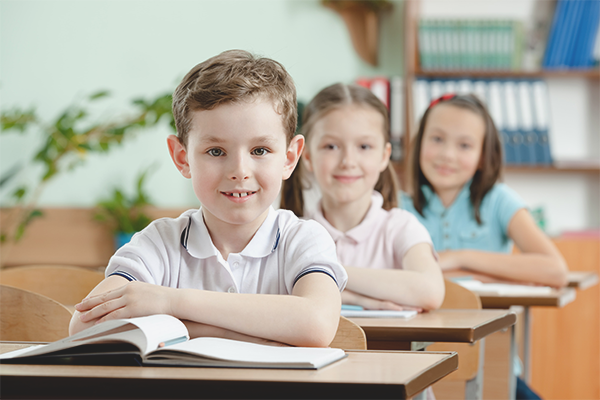
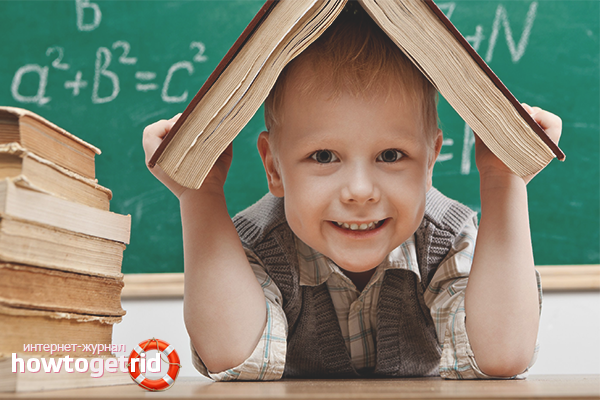



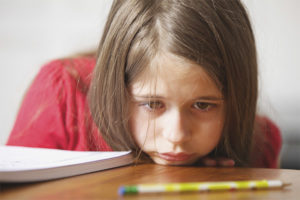
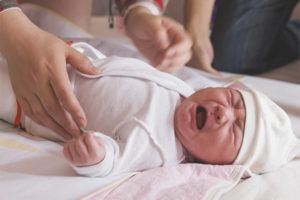
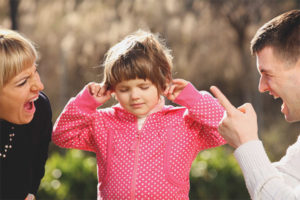

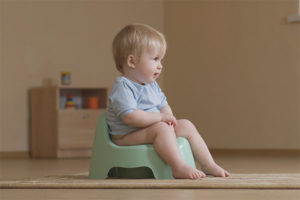
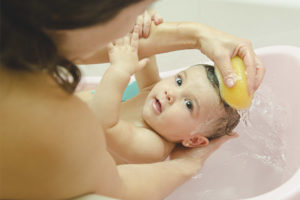
To send